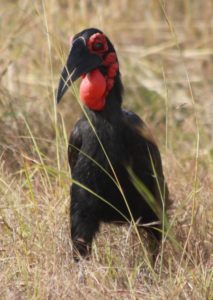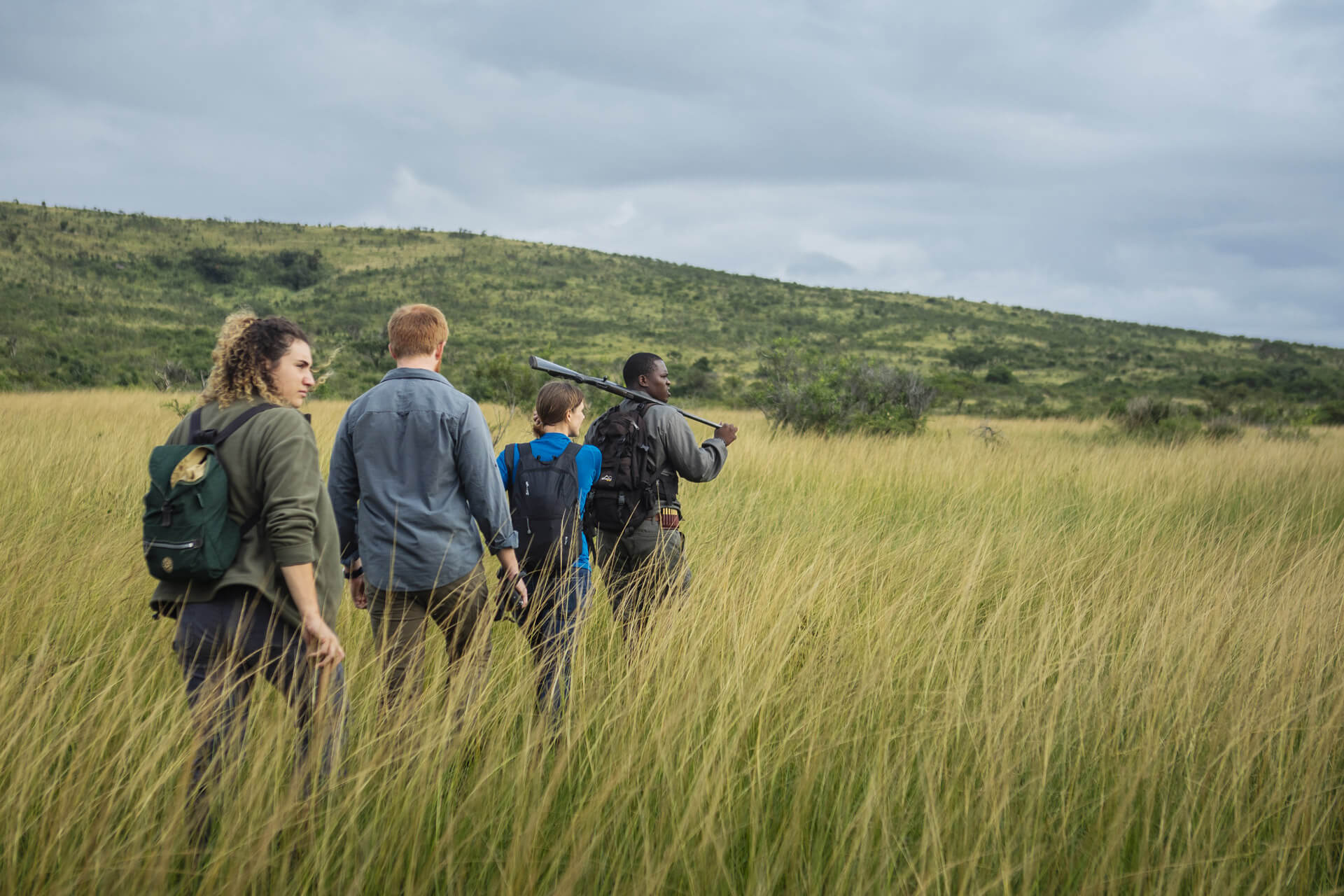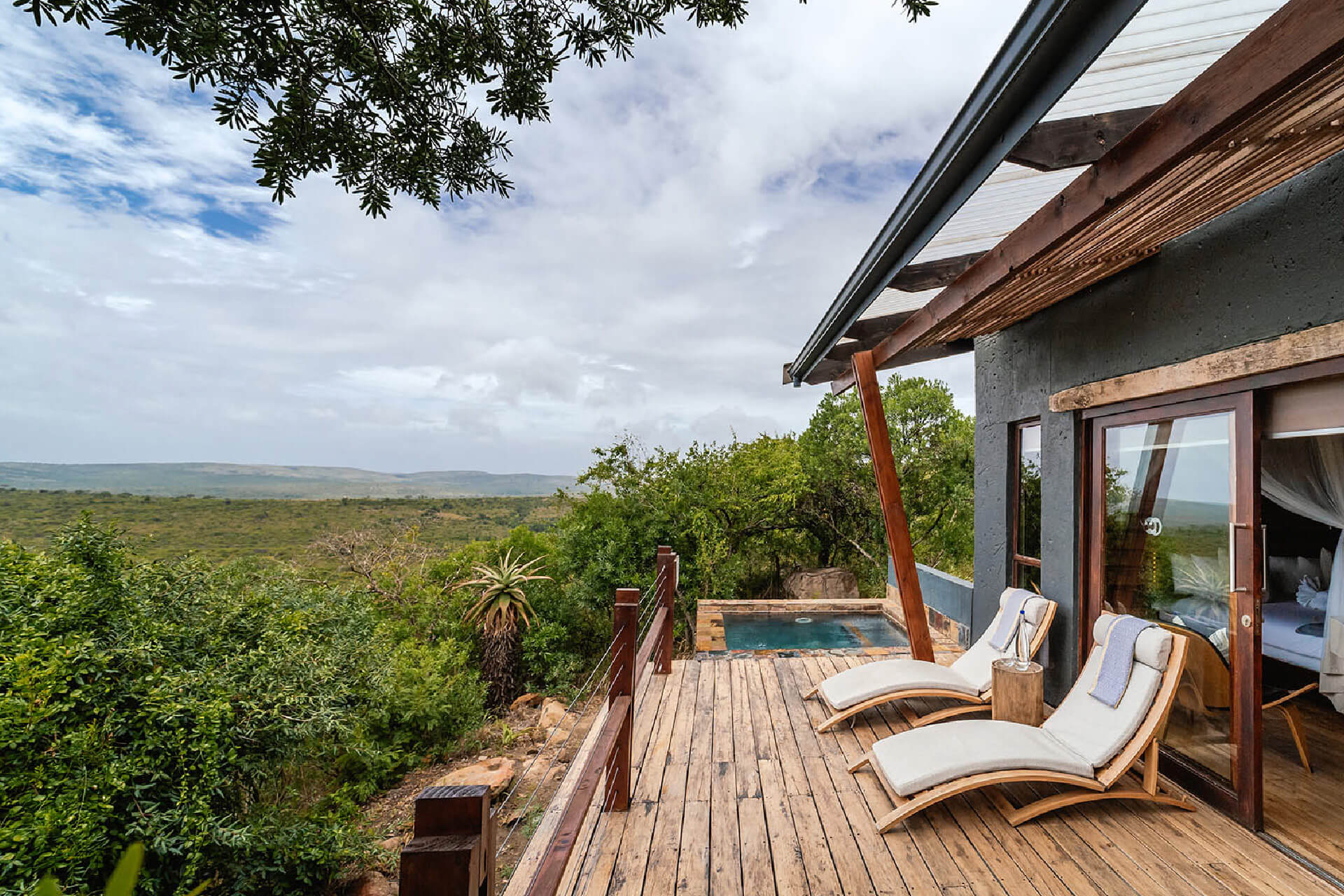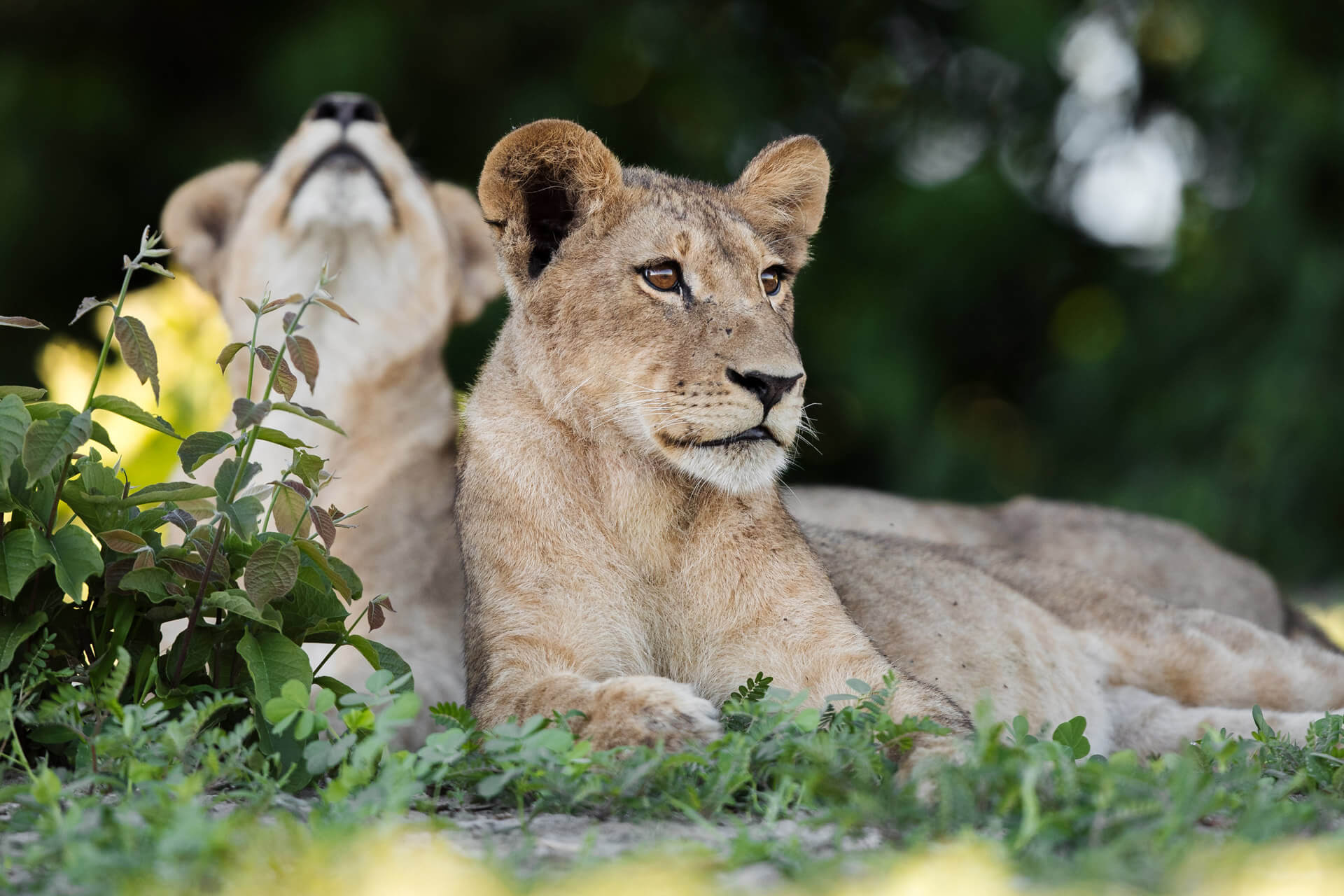Ground hornbill lament
Posted in: Wildlife
Posted on: June 23, 2017
I wake early to the lament of the ground hornbill as they pick their way across the Timbitene Plain in the Kruger National Park. Doo, doo, doo-doo calls one gently. Dow, dow, dow-dow-dow replies the other. I sit up in my bed and quietly lift the front of my tarpaulin tent so that I might watch them walk in their funny way across the plain. It is a privilege which fills my chest and after they have passed, I snuggle back into bed and whisper to myself “Doo, doo, doo-doo. Dow, dow, dow-dow-dow” as I fall back asleep.
We set out early the next day as dawn breaks on a Rhino Walking Safari from Plains Tented Camp in the Kruger National park, tracking our beloved friend the Southern Ground Hornbill. Dodo-like in many aspects, Ground Hornbill once reached critically low numbers in Africa. Despite the dedicated efforts of several conservation projects, their numbers are dropping vulnerably to endangered. The Mabula Ground Hornbill Project cites that there are currently only 1500 Ground Hornbill left in South Africa. You may still be lucky enough to encounter these surprising birds roaming freely in the Kruger National Park and in the Hluhluwe-iMfolozi Game Reserve in KwaZulu-Natal. Some of the hand-reared ones even lumber towards stopping cars, unafraid of humans and hoping to say hello.

I love their funny way of walking towards one
Here are some interesting facts about this fascinating bird:
- Ground hornbills are omnivorous, eating mostly insects, lizards and snakes off the ground.
- There is a reason these big birds have a prehistoric look – a prehistoric Ground Hornbill fossil was found in Morocco, and Kemp (1995) explains how they may have once been more widespread and common before Quarternary glaciation.
- Southern Ground Hornbills may be amongst the longest living birds, living up to 70 years of age.
- As their name suggests, Ground Hornbills spend most of their time on the ground, although they may roost in trees at night. They have very strong legs.
- Adult males are usually about a meter in height, although can grow to 130cm.
- Ground Hornbills are slow breeders and may only produce one chick per breeding couple every 9 or 10 years. Research indicates that dominant males may hold on to their position too long, even though they may only be fertile for about 10 years.
- They are dedicated parents and chicks usually stay with their parents for about a year.
Southern Ground Hornbills are endemic to sub-Saharan Africa. The Mabula Ground-Hornbill Project is working to slow the decline by:
- Harvesting and assisting the hand-rearing of redundant second-hatched chicks that dies of starvation in the wild nests.
- Re-wilding of the hand-reared chicks by established groups in ‘bush’ training schools.
- Reintroduction of these ‘rescued’ birds back into areas where they have become locally extinct, once the original threats in those areas have been mitigated.
- Augmentation of non-viable groups in the wild.
- Provision of artificial nests for wild groups with no or inadequate nests.
- Research on genetics, behaviour and other important unanswered questions necessary for successful re-establishment.
- Coordination of Awareness Campaigns, to educate the general public to the threats facing this flagship indicator species and to reinstate the bird into collective memory in areas where it has become locally extinct.
My heart stops on our walking safari, as in a clearing not far from the main camp we come across these funny creatures walking in their considered way across the veld. It is a family of three, dad with bright red wattle and face, Mom and Junior are darker in colour. They are not comfortable with our presence, being completely wild in this untouched area of the Park. I am a little pleased about seeing them being so guarded and I send out a silent blessing in their language to encourage them to continue being careful parents. We back away respectfully and let them get on with the important business of living out their full days in protection and peace.





